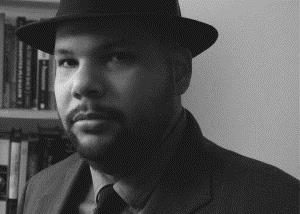Secular Activism and Latino Nones: An Interview with Dr. Juhem Navarro-Rivera
 Photo via juhemnavarro.net.
Photo via juhemnavarro.net. “[T]here are more people using their secular label as a way to move forward and counteract the attacks on women, the attacks on science, and the attacks on facts, based on what their secular values are telling them.”
Dr. Juhem Navarro-Rivera is a political scientist and a humanist. He has a specialty in American and comparative political behavior, which provides a unique insight into the political issues of the day. More specifically he is interested in the political behavior of the religious “nones,” Latinos, and Latino nones.
TheHumanist.com: You have expertise in the political behavior of the nones (those who answer “none” when asked for their religious affiliation or identity). In terms of the activism taking place since the inauguration, what have the Nones been up to with the new Trump administration?
Dr. Juhem Navarro-Rivera: In previous years or recent times political activism among the nones has been related to issues of church and state, of science, and religion. These are the bread and butter for the secular movement. What I have seen lately is some real movement in political activism with people running for office who are openly secular and running for office without running away from those [secular/atheist] labels. The Freethought Equality Fund has been finding some of those voices. But even at these early stages of the administration, which is a little more than two months old, we are seeing a lot of movement in terms of [secular Americans seeking office]. A lot of interest in mobilization.
I live in Washington, DC, and was able to see multiple secular organizations marching in the Women’s March on January 21. I know that prominent secular people and secular activists are getting very involved in the March for Science (April 22) and also the People’s Climate March (April 29). I am seeing some level of activism in an openly secular way—not necessarily just secular people who are members of other [non-secular] organizations working in their activism.
I can include myself. For my day job, I work for a progressive organization. I do certain political activism in that way, but not necessarily identifying as a secular person. There are secular people, or secular-minded people, who work for non-secular organizations. But now I get the impression that there are more people using their secular label as a way to move forward and counteract the attacks on women, the attacks on science, and the attacks on facts, based on what their secular values are telling them.
TheHumanist.com: Let’s talk about Latino nones in the United States. What are the demographics, and how has their political activism looked?
Juhem: Most of the big surveys, by which I mean those by the Pew Research Center, the Pew Hispanic Trends Project, or Public Religion Research Institute (PRRI), find that about one in five Latinos identify in some way as secular (atheist, agnostic, or nothing in particular). The 2008 American Religious Identification Survey, which I worked on as an analyst, found that 12 percent of Latinos were nones. So there has been incredible growth in just under a decade.
Certainly this has been driven, like the general population, by young people. PRRI estimates that 30 percent to one-third of Latinos under thirty claim no religious identification. That is an interesting fact because one thing we know about political participation in general is younger people tend to be less involved for various reasons.
In general, Latinos tend to support the Democratic Party candidates over the Republican Party candidates. That holds true even more so for Latino nones. I don’t have data for 2016 in terms of race and religion polling, but I know that PRRI, where I was employed and worked on surveys a few years ago, found that Latino nones were more likely to vote for Obama in 2012 than Latinos in general. We certainly know that Latinos nones, like nones in general, are more liberal than the general population. Latinos generally lean heavily Democrat in voting, and the Latino nones are even more so.
In terms of the new presidential administration, for many young Latinos, the main issues are immigration and the deportations that have been carried out.
But to what extent secular Latinos are disentangling their Latino identity, as a racial and ethnic group of the United States, or whether their religious identity is a factor into that, I am not sure. As a Latino myself, though not under thirty, that is something that I have to deal with. I’ve had the Latino concern about what is happening to my fellow Latinos who may be of any religion, but feel under attack by the administration.
What I think is, and I don’t have a lot of evidence for this, is that young people, particularly young Latinos, were more likely to vote for Bernie Sanders than Hillary Clinton, even though Clinton won the overall Latino vote. I think this is consistent with the evidence that they are more liberal than their peers, and the younger secular cohort are even more liberal than older seculars.
Latino nones are looking for a space. They’re looking for a space not only for political activism within the Latino community and within the larger secular movement. I think it’s a two-pronged battle. So I think some of them that are politically minded may have to decide where they want to put their energy.
